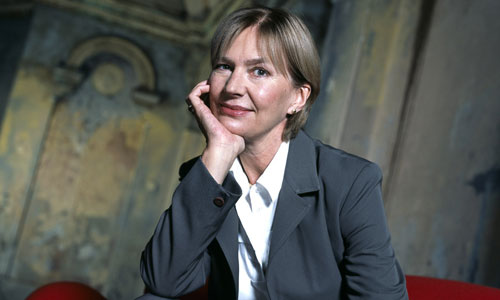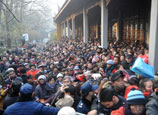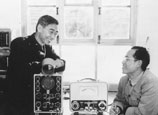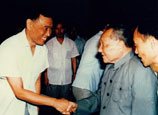
 |
| A photo of Isabel today Photo: Courtesy of Isabel Hilton |
As China remained largely closed from the outside world until the end of the 1970s, Hilton landed herself a job with the Sunday Times as a feature writer after returning home from China in 1975. Her journalistic career took her to many countries around the world, and allowed her to witness a lot of historic moments such as the fall of the Berlin Wall and the breaking up of the Soviet Union. Hilton, however, never completely took her eyes off China, until she became much more engaged again with China since early 1990s.
"China is so huge that you could spend several lifetimes to follow it and understand it, not to say it has become a totally different place. It's no longer the daunting proposition it used to be. It has such a weight in the world today and you just couldn't understand the world of the 21st century without understanding China," said Hilton. Given how tempting the constant changing landscape of China is, Hilton says she could never believe her learning about China to be over. "It's a great privilege to watch this economic revolution in human history. How could you possibly not be interested," Hilton added.
China Dialogue website
Hilton has not only been a close observer of China's development but has taken an active role in it as well. In October 2006, she and her team launched an independent environment bilingual website called China Dialogue.
She chose not to focus on issues like human rights or democracy in China, where Hilton felt there was little chance of a meeting point with the West. Hilton says her choice to zero in on the environment and climate change was based on environmental problems being a concern for all people and an issue for all nations. By presenting reports, information and expert views from both Chinese and foreign perspectives on environmental issues, Hilton, as chief editor, has set a very concrete mission for the website.
"China's environmental issues are particularly bad, as it's still in the middle of its industrial revolution. But China's problem also relates to international trade and to the global supply chain and so is not just China's own problem. We think it's very important to try to create common understanding about common environmental problems," said Hilton, who argues that the fundamental function of the website is to make more information available before any decisions which could have an environmental impact are made.
"If you keep the information too narrow, you have bigger chances of making more mistakes. It does contribute to social harmony when decisions are made out of consultations through which, a broad range of people's interests can be heard. The more people discuss it, the more a policy is tested, the better the policy will be," said Hilton.
Now looking back this "strange and turbulent" time in China's history that she witnessed, Hilton always has mixed feelings. She regrets not being able to really make friends with any Chinese people at the time, as any foreign connections could be regarded as evidence of espionage or lacking patriotism. But at the same time, she sees it as very meaningful. "I learned a huge amount, as even for an understanding of China now, it's very useful to have that perspective, to know where it came from in its recent history," said Hilton.
"Learning Chinese changed my life, as it meant that for the rest of my professional life, I would be either going to China or be interested in China. It's like a huge window on culture, experience and history, and I am very glad to have opened it early in my life," said Hilton.
 |
















 'Collective children's weddings' held in kindergarten
'Collective children's weddings' held in kindergarten


![]()
